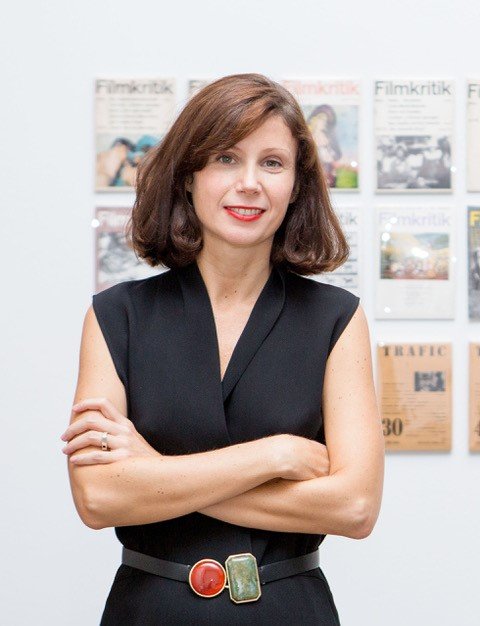Rosa Lleo

In 2022, 41 contemporary art curators, researchers, and museum directors from 24 different countries were awarded to attend the CIMAM 2022 Annual Conference. The CIMAM 2022 Annual Conference, titled "The Attentive Museum. Permeable Practices for a Common Ground", was held in Mallorca (Balearic Islands), Spain on 11–13 November, hosted by Es Baluard Museu d'Art Contemporani de Palma.
Rosa Lleo's Conference Report
I would like to start this report with one of the first sentences, by Bart de Baere, which caught my attention on the first day: “In fact, contemporary art museums are not museums but art centers”. Put into context, it was an invitation to work with the performative, the ephemeral, and with an emphasis on education. To be radical and critical of the systems of power. To be “trustful environments to deal with conflicts”, as stated later by Iris Dressler. This was happening sometime later than the King of Spain gave his speech as an introduction to the congress, which is kind of interesting - and controversial to many - but a perfect example of what institutions need to negotiate with these days and how good governance is the way to implement it.
Day 2 session resonated with me especially, as I am preparing a project with the Ethnographic Museum of Barcelona, and it was specifically dedicated to “unlocking histories” and creating new narratives that dealt with decolonial practices in the museum. Here again, the idea of governance appeared when the first speaker Denise Ferreira da Silva quoted the saying “The Master’s tools will never dismantle the master’s house”. Clementine Deliss stressed how to transform the inherited modern ideas of the museum as a department store. She showed us some examples of a metabolic practice, where the figure of the curator becomes a nurse, someone that takes care on a personal level, and its exhibitions are thought of as channels of healing. Even further, the South African artist Sethembile Msezane gave us an incredible lesson on how to be respectful of other world views, and to reconfigure what is human and what is subjecthood, through her artistic practice. It was mind-blowing to see someone that is beyond the linear understanding of time and of being in the world. It made me feel that, at least in the Spanish context, we still have a long journey to go to disrupt our inherited legacies. It is important to mention that it was set in a very special venue, Esment, a non-profit organization caring for the socially impaired. I was wondering if there were more grassroots organizations like this foundation that we could have visited or more radical and sustainable projects on the island. Manuel Borja Villel, on Day 3, introduced the idea of how to work with asymmetrical institutions. I have experienced these kinds of situations, coming from a non-profit organization, and it is true that there is always a hierarchical relation, one of violence inherent to institutions. How to approach the other without including that? The question of situated knowledge appeared repeatedly, and to review the term “caring”. To clarify it and complicate it.
It was over the group workshops, that we reflected on the idea of a dispersed model of the institution, putting attention on specific examples and how and where we could start. A colleague suggested that to care is to look first at the people working, which are their conditions, how is their salary, and their space, and listen to them. To implement changes there needs to be a consensus among the people that sustain the institution on its every day, otherwise, we are replicating the colonial and Modern model of imposing an authoritarian view over others.
I would like to sincerely thank the CIMAM Board and organizers for the opportunity to attend this Conference and interact with other professionals who share similar experiences. I would also like to thank our hosts in Palma for their hospitality and attention. I was very moving to see that Pelaires Gallery had put on an exhibition by Ana Laura Aláez, especially for us. The superb meals and the afternoon visits around the historic center of Palma were a perfect moment to chat with peers about issues raised previously, and of course, it was unique to be on our own in the interior of one of the biggest cathedrals in Europe.